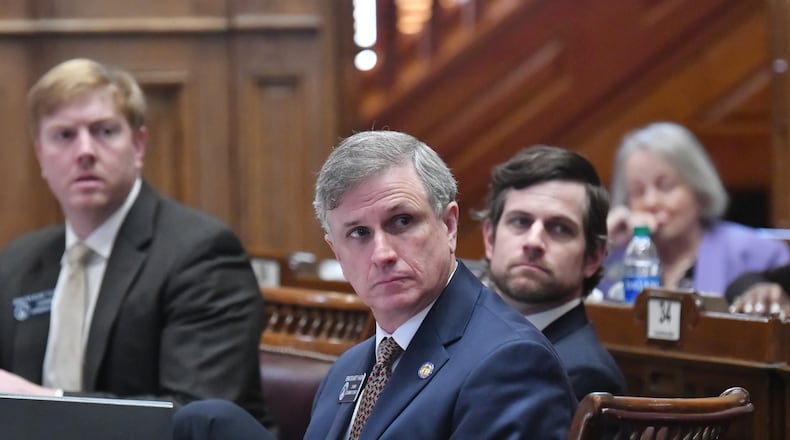The Georgia Senate approved legislation Thursday to require students to participate in high school sports according to the sex that appears on their birth certificate.
The Senate backed the measure on a party-line vote of 32-22, with Republicans voting in favor of the bill. Similar bills have been proposed in prior years, but this is the first time such a measure has had a vote by a full chamber.
State Sen. Marty Harbin, a Tyrone Republican, said the bill will create fairness for girls who play sports in Georgia schools.
“It is our responsibility as legislators and as adults with common sense to resolve this issue and ensure that Georgia’s girls aren’t robbed of time on the field, a chance for character building, athletic accomplishments and invaluable scholarship,” Harbin said.
Supporters said transgender girls have an unfair advantage because of their biology and pointed to cases in Connecticut where two transgender girls placed first and second in track competitions in 2018 and 2019.
Senate Bill 435 would ban schools from allowing transgender girls from participating in sports that align with their gender identity unless there is no equivalent sport offered by the schools.
State Sen. Kim Jackson, a Stone Mountain Democrat who is the chamber’s first openly LGBT senator, emotionally recounted her time in youth sports as a gay woman.
“In the early 2000s, adults said really cruel things to me about gay athletes,” Jackson said. “They made straight athletes feel afraid by suggesting a gay athlete would touch them inappropriately during games.
“As I stand here today, the very same accusations and mischaracterizations that were hurled at me 20 years ago are now being used to harm a new generation of children,” Jackson said. “I want you to know that they were wrong to be afraid of us and to deny our dignity then. And they are wrong to be afraid of you and to deny your dignity now.”
Credit: HYOSUB SHIN / AJC
Credit: HYOSUB SHIN / AJC
According to the bill, schools would have to define a student’s gender based on “a person’s reproductive biology and genetics at birth.” A young athlete who could prove he or she was deprived of an opportunity that was given to a transgender child, or was harmed by a transgender child while playing a sport, could then sue the school or school system for damages.
Harbin, who took no questions from his colleagues during the debate, has said he was not aware of any transgender students who have taken the spots of girls on youth sports teams.
But Republicans have pushed such proposals to fire up the GOP base this election year.
The bill is nearly identical to one the Senate Education and Youth Committee passed last year — Senate Bill 266 — along a similar party-line vote. It never made it to the Senate floor.
This year, SB 435 is co-sponsored by Senate Republican Caucus leaders. Gov. Brian Kemp, who faces a stiff GOP primary fight for reelection, has also hinted at support for such legislation.
State Sen. Matt Brass, a Newnan Republican, said there are instances where girls who excel in their sport are known to “play up” by joining a boys team to face stiffer competition. That means there is such a thing as “playing down,” Brass said, and lawmakers need to protect student athletes who would be affected.
“We have come a long way in this country and how we treat women and a long way for women’s rights,” Brass said. “I believe that women’s sports are one of the greatest tools that we have in our constant fight for gender equality. And this bill simply helps protect that — nothing more, nothing less.”
Opponents of the bill warned that it could lead to increased suicide attempts by transgender children and cost the state money by jeopardizing large events, such as those put on by the NCAA.
The bill now goes to the House for its consideration.
About the Author
Keep Reading
The Latest
Featured




